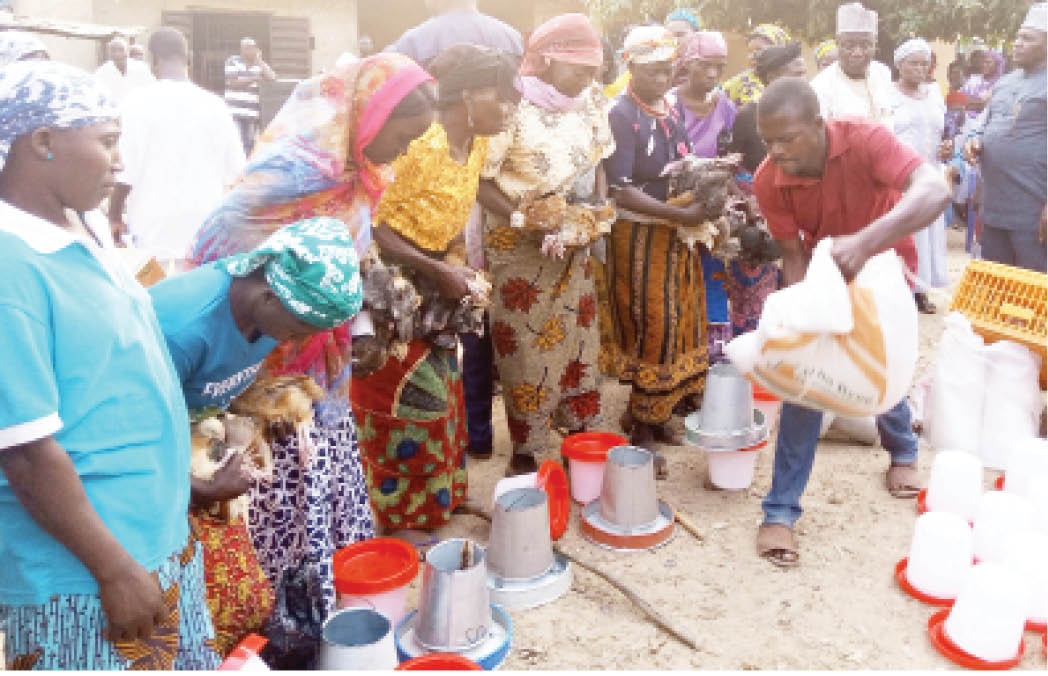Why farmers’ cooperative societies fail
As required of any undergraduate in the final leg of his academic sojourn, I embarked on my project work soon after the topic was decided and approved by my supervisor. Seeing how farmers in Nigeria suffer because of limited resources at their disposal and government’s little or poor attitude towards solving farmers’ problems, I felt […]

As required of any undergraduate in the final leg of his academic sojourn, I embarked on my project work soon after the topic was decided and approved by my supervisor.
Seeing how farmers in Nigeria suffer because of limited resources at their disposal and government’s little or poor attitude towards solving farmers’ problems, I felt the concept of cooperative societies was worth mulling over.
That was what actually informed my decision to base my research on farmers’ cooperative societies. The idea was to establish whether cooperative membership has any impact on farmers’ productivity, insight into the cooperative activities and to also determine some of the socio-economic factors that influence farmers’ access to cooperative loans.
After fetching all the data from the study area – Dukku Local Government Area of Gombe State – findings revealed that albeit farmers’ cooperative societies are formed with a view to improving members’ productivity by way of pooling resources together to stem the tide against the limiting factor of limited funds, majority (76.2%) of my respondents could not access cooperative loans.
Part of the reason was that the cooperative societies had inadequate loan to give out to members. Although multiple responses on constraints to loan accessibility were recorded while the respondents filled out the structured questionnaire administered to them, majority (88.9%) of them, who were cooperative members, identified ‘unavailability of loan to give out to members’ as the major constraints limiting their access to loan.
It can be understood from the result, therefore, that many cooperative societies lack the knowledge as to what a cooperative society is all about.
Most of the cooperative members interviewed revealed that they formed their societies when the previous government promised to target cooperative farmers while disbursing inputs for farming.
According to them, since that was what triggered the coming up of some of these societies, a number of them ceased to carry out any activity when government failed to target them.
Farmers’ cooperative societies should not just be formed when government promises to give out loan or inputs. The whole concept of cooperative is about self-help, helping each other to achieve set objectives that are agreed by all who agreed to form the society.
Cooperatives are in existence so that individual farmers will form and organise themselves into groups and mobilise resources they have at their disposal in order to improve production capacity, which will translate into having improved productivity and consequently improve the living standard of the people.
When farmers see cooperatives as being important only when there is government loan, then the objective, which is improvement of production through self-help, can hardly be achieved.
Since the government alone cannot do all the work, it follows that cooperatives should be formed to augment the efforts of governments as farmers are better recognised when they form themselves into groups and societies.
However, farmers who intend to join cooperative societies must be educated by extension workers on the need to pool their resources together, either on a monthly basis or fortnightly, in order to grant members soft loans for better productivity.
Rilwan is a 500-level student of the Department of Agricultural Economics and Extension, Abubakar Tafawa Balewa University (ATBU), Bauchi.
